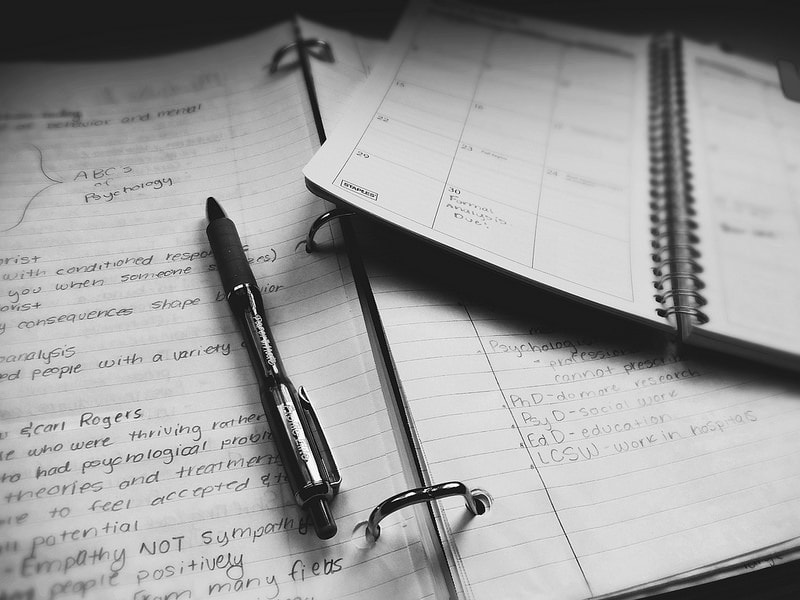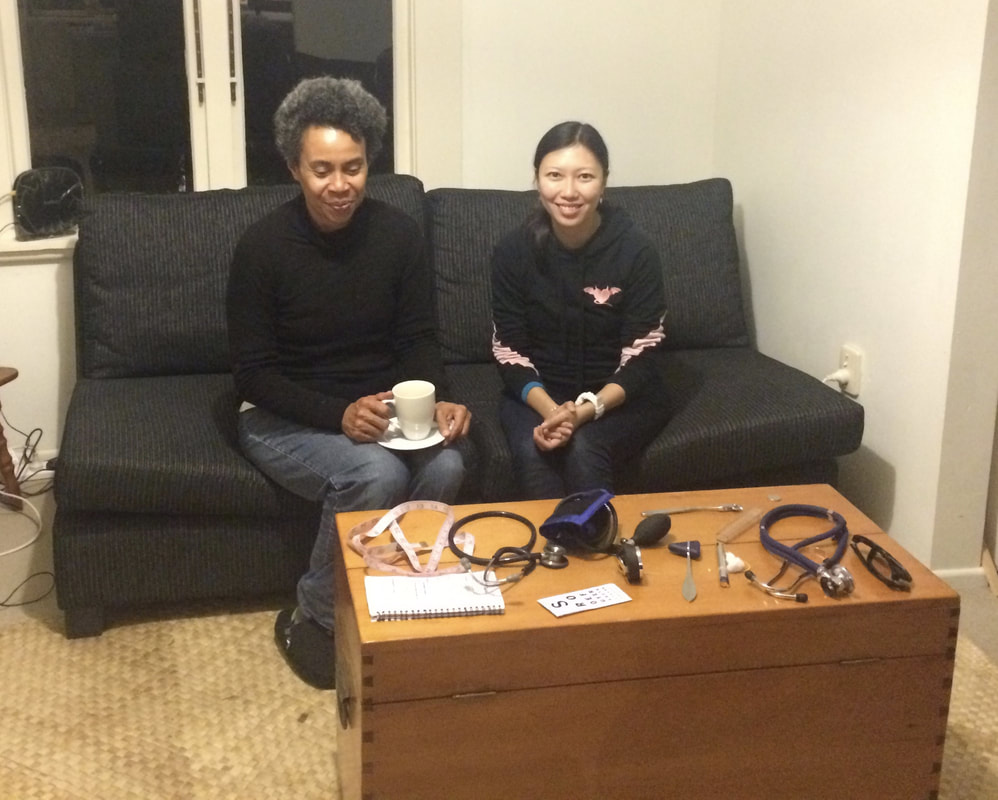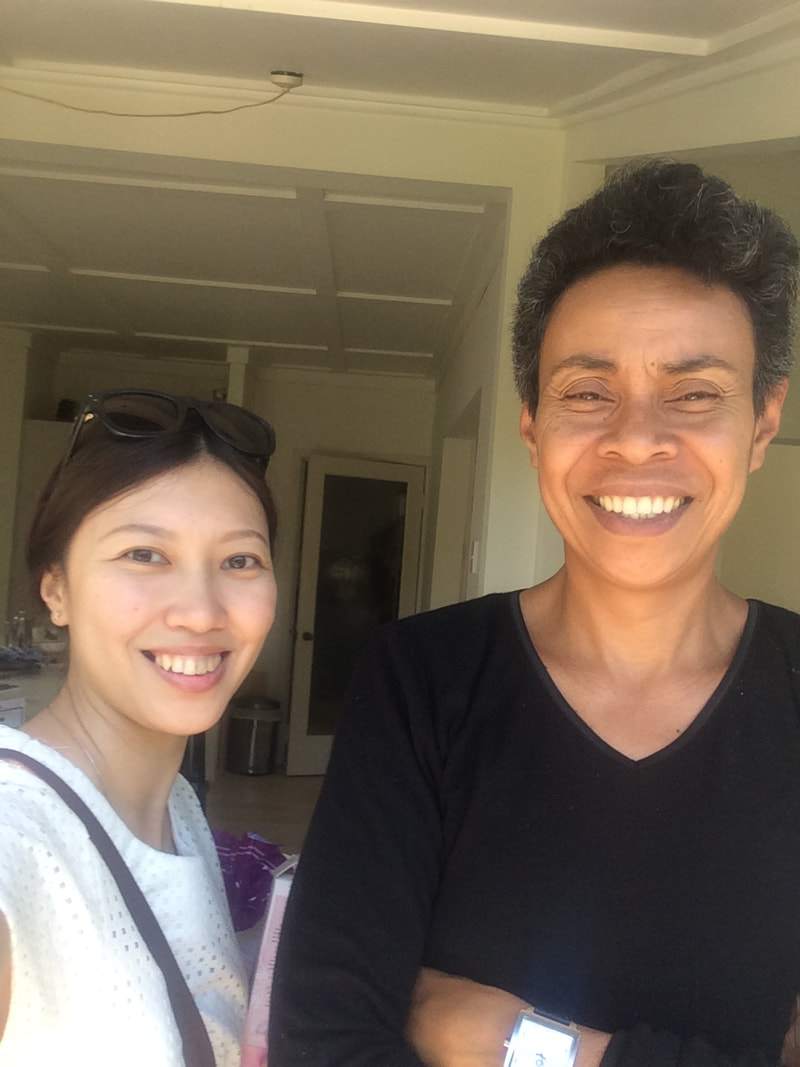Three to four weeks before the exam
From my experience the last few weeks before the exam was the most difficult time during my exam preparation. As I felt so tired from rehearsing all the materials over and over again. I started loosing interest in my study and feeling anxious because I was not ready yet for the exam. So my study partner and I decided to take a week break after the mock exam, and we promised that we will come back with fresh mind and give the best effort to pass the exam.
As the exam exam only a few weeks away, it is natural if you feel more anxious. You may feel that you have learned everything but you keep forgetting the important information for counselling stations or particular questions in history taking, or you keep running out of time when doing physical examinations. The good news is everyone experience the same thing, so you are not alone.
The key to survive the last few weeks before your exam is to organise your study schedule well. Below is some tips from me to help you planning your last several weeks.
1. Attend a mock exam
If you are studying in a group you can organise a mock exam. If you are not part of a study group, start asking around if there is any study group that will do a mock exam. In my experience, the mock exam was a crucial part of my preparation. The mock exam is usually design to mimic the real exam, so for the first timer, this is the best opportunity to experience the exam. You will get useful feedbacks on your performance from the past candidates who volunteer as examiners.
Mock exam is usually held at least four weeks from the real exam so you will know your weaknesses and will have time to make improvement. Cases on the mock exam are usually have high possibility to be in the real exam.
2. Make a list of cases that most likely will appear on your exam or make prediction
Predict and practice those cases. This is sound complicated and confusing but it is actually very easy. Find out what cases that have been in the previous exam up to a year back. Cases from the two previous exam are very unlikely to be on your exam so you can cross them out. Cases from a year ago, are more likely to be in your exam. Then check the remaining cases from the high yield case lists. Cases that are common in New Zealand are more likely to come than more rare cases, however in each exam usually there is one rare case. Remember that this is a prediction only, so there is no guarantee that your prediction will be 100% correct.
3. Recognise your weaknesses
Get honest feedback from your study partner or from someone who has passed the exam, look for your weaknesses and improve them.
4. Do what ever work for you
If you learn more by reading, then read your script again and again. If you learn better by practicing, then practice as much as you can with your study partner. I belief after a few months preparing for your exam, you will have an idea about the best study method that suitable for you.
5. Get in to the habit
You have accepted the allocation letter from the medical council, so you know which slot will you be in. Why this is important, because you want to start building some habits for your body to follow. For example, if you are in the morning slot, you will start your exam at 9 am. So wake up and get ready to start your practice at 9 am. Say "Good morning" when you introduce your self in every practice stations. Pace your self so you are able to last for 3.5hr in your optimal condition. Remember there is only one toilet break, so you will need to train your bladder as well. The same with the afternoon session, train your self to be able to maintain your optimum performance until around 4pm. That's means you need to have lunch before your exam. Use "Good afternoon" for every station when you practice. The main point is to get your self as comfortable as possible when you do your exam.
6. Do your home work as early as possible
Aim to reduce as much stress as possible near the day of your exam. Find out where you should go, choose your outfit in advance, book your ticket and accommodation for out of town candidates.
Avoid driving to the exam venue if you can. Organise for your family or friends to droop you off, or to hire a taxi. Public transport in Auckland sometimes can be a bit stressful, so avoid it if you can.
I wish you all the best with your preparation and exam. It is a tricky exam, but it is very possible to pass it with proper preparation. Good luck to all future candidates. Feel free to droop a comment or send me email if you have any questions.
From my experience the last few weeks before the exam was the most difficult time during my exam preparation. As I felt so tired from rehearsing all the materials over and over again. I started loosing interest in my study and feeling anxious because I was not ready yet for the exam. So my study partner and I decided to take a week break after the mock exam, and we promised that we will come back with fresh mind and give the best effort to pass the exam.
As the exam exam only a few weeks away, it is natural if you feel more anxious. You may feel that you have learned everything but you keep forgetting the important information for counselling stations or particular questions in history taking, or you keep running out of time when doing physical examinations. The good news is everyone experience the same thing, so you are not alone.
The key to survive the last few weeks before your exam is to organise your study schedule well. Below is some tips from me to help you planning your last several weeks.
1. Attend a mock exam
If you are studying in a group you can organise a mock exam. If you are not part of a study group, start asking around if there is any study group that will do a mock exam. In my experience, the mock exam was a crucial part of my preparation. The mock exam is usually design to mimic the real exam, so for the first timer, this is the best opportunity to experience the exam. You will get useful feedbacks on your performance from the past candidates who volunteer as examiners.
Mock exam is usually held at least four weeks from the real exam so you will know your weaknesses and will have time to make improvement. Cases on the mock exam are usually have high possibility to be in the real exam.
2. Make a list of cases that most likely will appear on your exam or make prediction
Predict and practice those cases. This is sound complicated and confusing but it is actually very easy. Find out what cases that have been in the previous exam up to a year back. Cases from the two previous exam are very unlikely to be on your exam so you can cross them out. Cases from a year ago, are more likely to be in your exam. Then check the remaining cases from the high yield case lists. Cases that are common in New Zealand are more likely to come than more rare cases, however in each exam usually there is one rare case. Remember that this is a prediction only, so there is no guarantee that your prediction will be 100% correct.
3. Recognise your weaknesses
Get honest feedback from your study partner or from someone who has passed the exam, look for your weaknesses and improve them.
4. Do what ever work for you
If you learn more by reading, then read your script again and again. If you learn better by practicing, then practice as much as you can with your study partner. I belief after a few months preparing for your exam, you will have an idea about the best study method that suitable for you.
5. Get in to the habit
You have accepted the allocation letter from the medical council, so you know which slot will you be in. Why this is important, because you want to start building some habits for your body to follow. For example, if you are in the morning slot, you will start your exam at 9 am. So wake up and get ready to start your practice at 9 am. Say "Good morning" when you introduce your self in every practice stations. Pace your self so you are able to last for 3.5hr in your optimal condition. Remember there is only one toilet break, so you will need to train your bladder as well. The same with the afternoon session, train your self to be able to maintain your optimum performance until around 4pm. That's means you need to have lunch before your exam. Use "Good afternoon" for every station when you practice. The main point is to get your self as comfortable as possible when you do your exam.
6. Do your home work as early as possible
Aim to reduce as much stress as possible near the day of your exam. Find out where you should go, choose your outfit in advance, book your ticket and accommodation for out of town candidates.
Avoid driving to the exam venue if you can. Organise for your family or friends to droop you off, or to hire a taxi. Public transport in Auckland sometimes can be a bit stressful, so avoid it if you can.
I wish you all the best with your preparation and exam. It is a tricky exam, but it is very possible to pass it with proper preparation. Good luck to all future candidates. Feel free to droop a comment or send me email if you have any questions.



 RSS Feed
RSS Feed